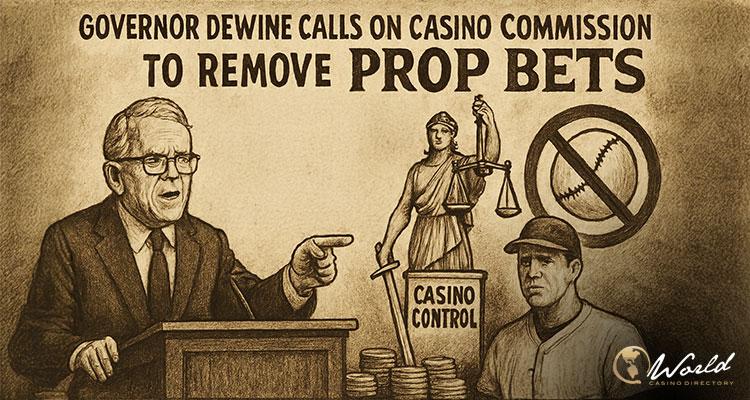Amid mounting concerns over the integrity of professional sports in Ohio, Governor Mike DeWine has formally requested that the Ohio Casino Control Commission (OCCC) remove all player prop bets from the state’s list of permitted wagers. This move comes as two pitchers for the Cleveland Guardians — Luis Ortiz and All-Star closer Emmanuel Clase — have been placed on administrative leave while Major League Baseball (MLB) investigates potential sports betting violations.
The investigation into Ortiz is reportedly focused on a game during which he threw two pitches that had been heavily wagered upon, with bettors correctly predicting that the pitches would result in balls. The circumstances surrounding Clase’s involvement remain unclear. Nevertheless, both players are on paid leave through August 31 as MLB examines the matter.
In response to these developments, DeWine issued a strongly worded statement: “The evidence that prop betting is harming athletics in Ohio is reaching critical mass. First, there were threats on Ohio athletes, and now two high-profile Ohio professional athletes have been suspended by Major League Baseball as part of a ‘sports betting investigation.’ The harm to athletes and the integrity of the game is clear, and the benefits are not worth the harm. The prop betting experiment in this country has failed badly. I call on the Casino Control Commission to correct this problem and remove all prop bets from the Ohio marketplace.”
Player Prop Bets Under Intense Scrutiny
Prop bets — short for proposition bets — are wagers on individual player outcomes or specific, often minute, in-game events. These can range from the number of pitches a player throws to the number of yards a receiver gains or whether a specific player makes a certain number of free throws. DeWine has taken particular issue with what he calls “micro prop bets,” in which outcomes are entirely controlled by a single player and may thus be more vulnerable to manipulation or misconduct.
Governor DeWine is not only asking the OCCC to intervene but is also calling on sports commissioners and unions across the six major professional sports leagues to support a ban on prop betting. His aim is to protect athletes and uphold the legitimacy of competition in Ohio sports.
College Betting Crackdowns Set a Precedent
DeWine’s concerns over the risks associated with prop bets are not new. In early 2024, he partnered with NCAA President Charlie Baker to urge the OCCC to prohibit college-level prop bets, particularly those involving individual student-athletes. That appeal came after players on the University of Dayton’s men’s basketball team received threats tied to sports betting outcomes.
Following that incident, the OCCC eliminated college player props in Ohio — a decision that, according to industry experts, impacted only a small portion of betting revenue. In fact, college player prop bets accounted for less than 2% of the market. However, expanding the ban to include professional prop bets could face substantial resistance.
“I think there will be significant pushback from the industry if this is seriously looked at. This could be very sweeping in how it’s applied,” said news analyst Geoff Zochodne. “The college player prop betting markets are fairly small. When you expand to professional props those markets are much bigger and there’s a lot more interest from players and sportsbook operators.”
Gambling Scandals Spark National Concern
Ohio is not the only state grappling with the implications of legalized sports betting. Across the country, high-profile cases have emerged, challenging public confidence in the fairness of professional sports. In June 2024, MLB suspended five players for violating gambling policies, including a lifetime ban for Padres infielder Tucupita Marcano, who had placed 387 bets totaling over $150,000. Additionally, an MLB umpire, Pat Hoberg, was dismissed for sharing his betting account and tampering with evidence during an investigation.
Other leagues have also taken action. The NBA issued a lifetime ban to Jontay Porter after it was revealed that he bet on his own games — a situation that has led the league to consider curbing or eliminating prop bets entirely.



